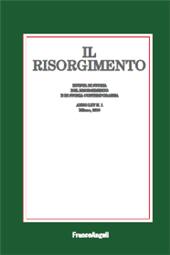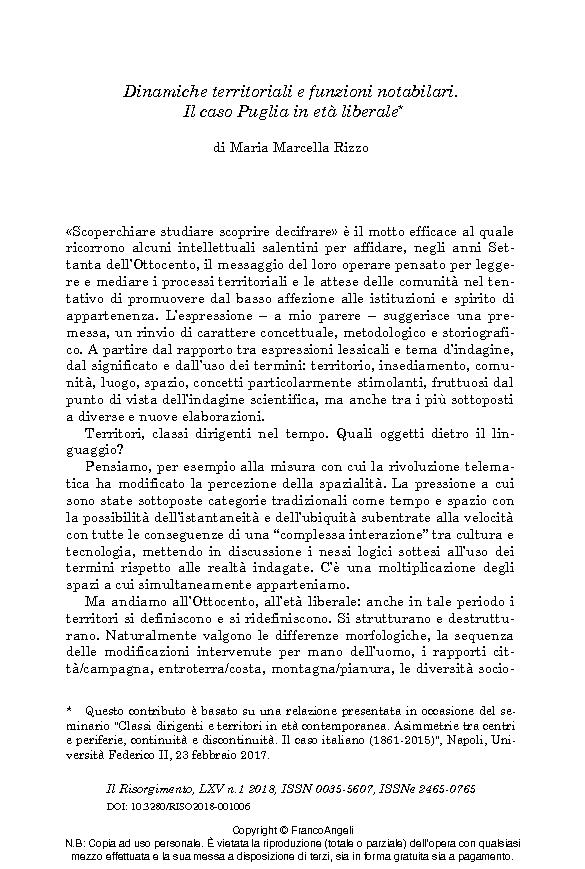Dinamiche territoriali e funzioni notabilari : il caso Puglia in età liberale
122-142 p.
La ricerca vuole indagare, con riferimento ai contesti spaziali e temporali, il ruolo del notabilato il cui agire sembra dispiegarsi in piena età liberale a favore di un intenso lavoro conoscitivo e propositivo a diversi livelli, anche istituzionali, per la mediazione di istanze e bisogni territoriali con un impegno speso e in molti casi dichiarato (pur nella molteplicità dei percorsi) per il bene comune, per la possibilità della auspicata Unità «organica», mettendo al servizio del Paese saperi e competenze. Tale modello entra in crisi tra Otto e Novecento rispetto ad una crescente complessità del sistema, tra numeroso ed esteso associazionismo organizzato e crescita di funzioni al centro e in periferia. [Testo dell'editore].
By recurring to specific spatial and temporal contexts, the purpose of this research study is to highlight the role of the notable classes, whose agency, during the Italian liberal age, seems to focus on a multi-level work (even at an institutional level) as the mouth-pieces of local interests and needs, with a clear and often outspoken commitment (despite the diversity of their experiences) to the common good as well as to the creation of a real "comprehensive" Unification, putting their skills and knowledge at the service of the whole country. This role began to decline in the years between the nineteenth and the twentieth centuries, when the entire system became more complex due to the spread of organized associations and to the increase of government functions at both a local and central level. [Publishers' text].
Fait partie de
Risorgimento : rivista di storia del Risorgimento e di Storia Contemporanea : LXV, 1, 2018-
Articles du même numéro (disponibles individuellement)
-
Informations
Code DOI : 10.3280/RISO2018-001006
ISSN: 2465-0765
KEYWORDS
- Territori, comunità, gruppi dirigenti
- Spaces, Communities, Ruling classes



